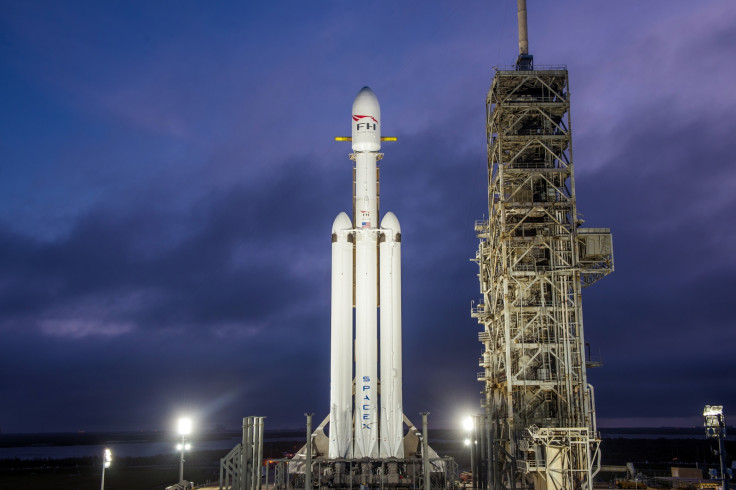Video: SpaceX performs thunderous test-fire of its massive Falcon Heavy rocket
"When Falcon Heavy lifts off, it will be the most powerful operational rocket in the world by a factor of two."

SpaceX has fired up its Falcon Heavy rocket setting the stage for its maiden launch – a grand event which could take place anytime in the coming weeks.
On Wednesday, 24 January, 2018, the spacefaring giant took a major leap and conducted the crucial static-fire test of Falcon Heavy. The goal was to fire all 27 engines of the massive rocket at the launch pad and check if the whole thing, three Falcon 9 cores combined to form one heavy-lift vehicle, works properly and is ready to take to the skies.
Everything worked as per plan and the 230ft- tall rocket passed the test with flying colours. Just hours after the test, Elon Musk took to Twitter to confirm the success of the crucial test, which came a bit late due to the government shutdown.
"Falcon Heavy hold-down firing this morning was good. Generated quite a thunderhead of steam," the billionaire wrote. "Launching in a week or so". The launch has been targeted for January but the official word on the exact date and time is still not out.
In a static-fire test, conducted prior to every launch, the rocket is restrained at the launch-pad and the engines are fired, The Verge reported. Usually, it is a Falcon 9 for SpaceX, but this time things were a tad different because instead of nine, the company was firing Heavy's 27 Merlin engines at Nasa's Kennedy Space Center (KSC) in Florida.
As can be seen in the video, the rocket roared with a thunderous sound as and when its engines were ignited. The boosters were fired only for a short 10 seconds, according to Space.com, but that was enough to cover the site in smoke.
Plagued by a series of delays over the last seven years, Falcon Heavy is set to be SpaceX's most powerful launch vehicle. The rocket will produce five million pounds of thrust at lift-off and carry payloads weighing up to 63,800kg into orbit. Musk has even expressed hopes of launching his Red Tesla Roadster on the massive rocket.
"When Falcon Heavy lifts off in 2018, it will be the most powerful operational rocket in the world by a factor of two," SpaceX notes on its website. "With the ability to lift into orbit over 54 metric tons (119,000 lb) -- a mass equivalent to a 737 jetliner loaded with passengers, crew, luggage and fuel--Falcon Heavy can lift more than twice the payload of the next closest operational vehicle, the Delta IV Heavy, at one-third the cost."
SpaceX's signature move is also staying. All three boosters of Falcon Heavy, two of which have already flown in 2016, will be reusable and will fly back to Earth for future launches, according to the Verge report.
Falcon Heavy hold-down firing this morning was good. Generated quite a thunderhead of steam. Launching in a week or so. pic.twitter.com/npaqatbNir
— Elon Musk (@elonmusk) January 24, 2018





